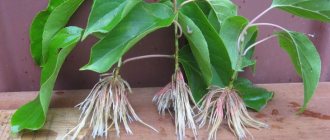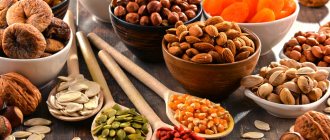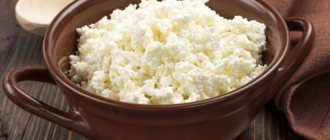What are the benefits for mother and child
Pear is not only tasty, but also healthy. It contains many vitamins and valuable microelements that a mother needs when breastfeeding.
These are vitamins A, C and B9, various minerals: potassium, which strengthens the heart, fiber to regulate the functioning of the gastrointestinal tract.
Beneficial properties of the fruit for a nursing mother:
- Increase in hemoglobin. This happens due to the large amount of iron in the composition. Since hemoglobin often decreases during lactation, pears are very useful.
- Folic acid. There is also a lot of it in the product formula. Vitamin B9 is very useful for mother and child. It is involved in the formation of blood cells, which improves the functioning of the brain and nervous system. Consuming the product helps prevent a deficiency of this important component.
- Treatment of gastrointestinal disorders. Pear has a strengthening effect, so it is useful for stool disorders. It contains a lot of tanning and pectin components, which create an environment in the gastrointestinal tract that is unfavorable for pathogenic microorganisms.
- Improving the functioning of the thyroid gland. Iodine contributes to this.
How to take Zyrtec drops for children? You will learn about indications and contraindications by reading our next article.
You will find detailed information about Tobrex eye drops for children in this publication.
Here you can find out interesting information about cefekon suppositories for children and their interaction with other substances.
Can a nursing mother eat pears?
Replenishing the body with fiber and vitamins is necessary for the mother of the child after childbirth. This hypoallergenic product is usually absorbed by newborns without complications, so when asked whether a pear can be eaten during breastfeeding, we usually hear a positive answer from nutritionists and pediatricians. In addition, all mothers understand that adequate intake of vitamins and microelements provides the basis for the health and immunity of the baby.
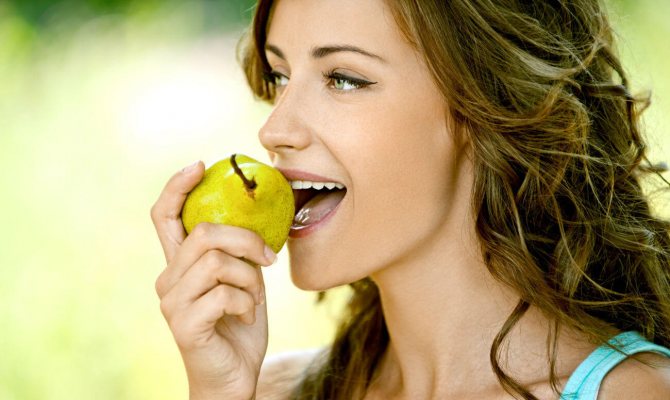
The benefits of pears for a young mother
Without a doubt, this fruit is useful for any person and especially for a young mother. Vitamins, minerals and enzymes in the composition increase the body's resistance to infections and have a beneficial effect on hematopoietic and intestinal activity. High fructose content has an antidepressant effect. Microelements such as folic acid, iodine, zinc, magnesium, potassium, sulfur, cobalt, iron are very important not only for the mother, but also for the child. These are important elements for heart function and improving blood composition. It also contains calcium and phosphorus, which will compensate for the loss of these elements during pregnancy. Iodine and zinc are necessary in order to avoid problems with the thyroid gland; iron will increase hemoglobin and tone the body.
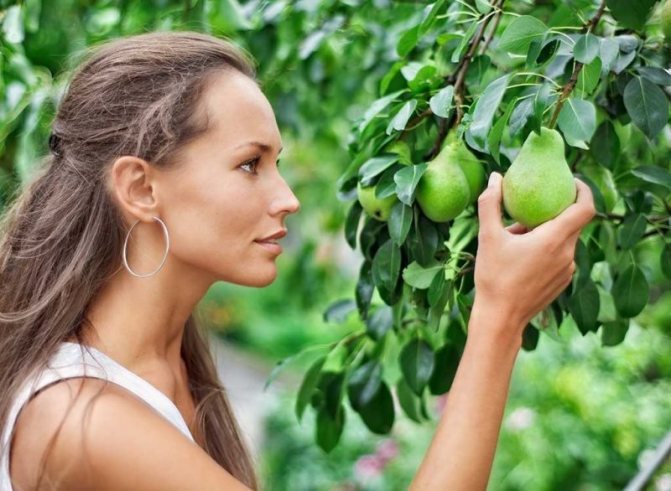
Table - composition and calorie content of pear
When asked if a nursing mother can eat pears, we would like to provide data on the chemical composition of this delicious fruit so that you have a complete understanding of its value in terms of health.
| The nutritional value of the Queen of Fruits is 47 kcal. | |
| Squirrels | 0.45 g |
| Fats | 0.3 g |
| Carbohydrates | 10 g |
| Water | 85 g |
| Monosaccharides | 9 g |
| Starch | 0.5 g |
| Macro- and microelements: | |
| Calcium | 19 mg |
| Molybdenum | 5 mg |
| Potassium | 155 mg |
| Sodium | 14 mg |
| Iron | 2.3 mg |
| Sulfur | 6 mg |
| Magnesium | 12 mg |
| Phosphorus | 16 mg |
| Fluorine | 10 mg |
| Selenium | 0.1 mg |
| Iodine | 1 mg |
| Zinc | 0.19 mg |
| Vitamins: | |
| RR | 0.1 mg |
| A | 2 mg |
| WITH | 5 mg |
| AT 6 | 0.03 mg |
| IN 1 | 0.02 mg |
| E | 0.4 mg |
Read also: Eyebright herb medicinal properties and contraindications

Possible harm from pears when breastfeeding a newborn
In cases where diathesis or rash is observed, taking pear while breastfeeding a newborn is prohibited. Wait a couple of months. When the baby’s skin doesn’t raise any questions and the pediatrician doesn’t put any restrictions on it, you can start introducing it into your diet. If, after eating a pear during breastfeeding, you notice that your baby has loose stools or has become more capricious due to colic, then it’s better to stop eating fruit and contact your pediatrician. However, there are no clinically proven results that colic in children is associated with the consumption of this fruit.

The effect of pear on the baby and lactation
Basically, the fruit has no effect on the child. Many mothers wonder: is it possible for nursing mothers to eat a pear and how it affects lactation. For good lactation, mother needs to eat from 200 to 300 g of any fruit per day. Since the queen of fruits is a storehouse of vitamins, microelements and fructose, she can easily replace harmful desserts and will bring great benefits.

WHO recommendations on pear consumption
WHO gives the following recommendations: firstly, it is advisable to eat it with the peel, as it contains a large amount of fiber and phytonutrients. Secondly, a nursing mother can eat pears no earlier than an hour after eating. It is also not recommended to eat on an empty stomach, so as not to irritate the intestines. The fruits contain 20% of the daily requirement of fiber, 7% potassium and 5% vitamin C. If you bought the product out of season, then it must be thoroughly washed or peeled, excluding exposure to harmful substances for anti-rotting treatments.
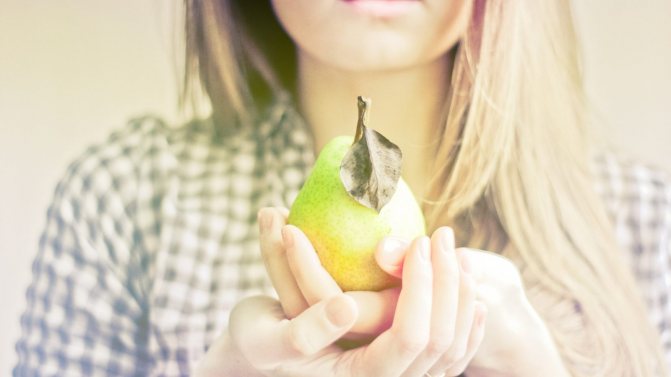
When they should not be eaten, possible harm
Usually the product does not cause negative reactions in the baby, in particular, an allergy to pear, so this is one of the first fruits that can be added to the diet of the expectant mother.
But if the baby is under three months old, then his body is not yet sufficiently adapted. Then you shouldn’t consume the fruits yet. Please note that pear is contraindicated for those who suffer from diabetes, as it contains a lot of sugar.

Almost all babies under three months suffer from colic, which accompanies the formation of intestinal microflora.
If the expectant mother eats a pear, the problem will worsen.
When the baby is older, you can add fruit to the diet, but it is important to monitor the child’s reaction . If negative manifestations occur, you should postpone further consumption of the fruit.
What time of day is best?
Regarding pears, there are a number of rules that it is advisable for everyone to adhere to, especially women with breastfeeding:
- You should not eat such fruits on an empty stomach. Due to the content of stony cells in the pulp, the gastric mucosa, as well as the small intestine, can be damaged in this way.
- You should not drink the pear with liquid, including water. When diluted, the pulp swells and begins to ferment. This may cause bloating. It is recommended to drink water several hours after eating such fruits.
- You can also avoid fermentation and stomach pain by observing the time interval between meals and eating the pear. The fruit should be eaten no earlier than 30 minutes after the main meal.
Did you know? Pears are recognized as hypoallergenic fruits, but people who are allergic to alder and birch pollen may react the same way to pears.
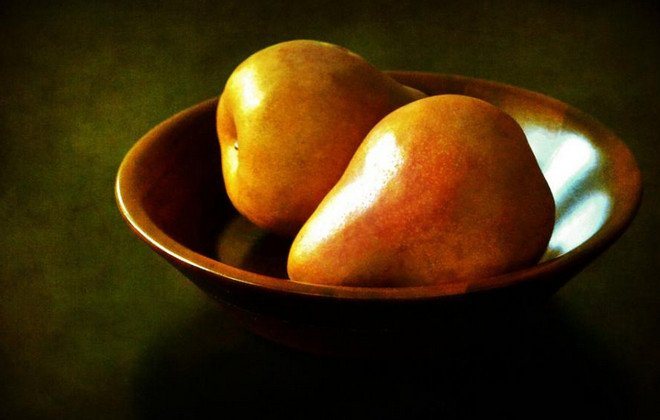
Should you eat them during lactation?
Use caution when breastfeeding any foods, and pears are no exception. They can have both positive and negative effects on the body of the child and mother.
But more often the fruit does not cause any problems, and it is considered a hypoallergenic product. Therefore, you can eat pears in the first months when feeding an infant.
Remember to be careful. The product contains a lot of fiber, which can weaken or, on the contrary, strengthen. At first, eat it little by little, and, monitoring the baby’s reaction, increase the portions.
In the first months, baked fruits will be safer. Despite heat treatment, they do not lose their beneficial qualities.
Should I add it to my baby's diet when breastfeeding?
The product can be added to your child's diet. This is often one of the first fruits that a baby tries after an apple.

For a breast-fed baby, the appropriate time to try a pear for the first time is 7 months, and bottle-fed babies often taste honey for the first time at 5-6 months of life.
It is better to introduce your baby to the product for the first time in the morning to observe his reaction throughout the day.
First, give your baby half a teaspoon of fruit puree. If there is no allergy, you can continue to feed him further.
From 6-7 months, give the baby 30 g of pulp, and by 8 months, increase the dose to 70 g. Pear juice is allowed from 8 months.
How and when to start giving to a newborn
How correctly and at what age can you give a pear to a baby while breastfeeding? Is it allowed to eat them in the first month of breastfeeding?
In the first postpartum month, eating pear in any form is prohibited; after three months you can include it in your diet .
Usually by this time the baby’s gastrointestinal tract is already more or less formed, so that the new product does not cause colic or bloating.
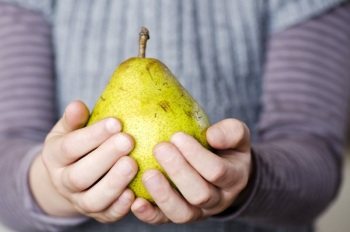
To ensure that eating delicious fruits brings only benefits, follow the recommendations.
Try the product in a minimal amount first. For the first time, a slice will be enough.
If after this the baby does not show any negative reactions, you can try increasing the portion.
Experts advise a nursing mother to eat about 400 g of fruit per day, and you can choose a pear as one of the ingredients.
Eat only seasonal fruits. Before eating, be sure to wash them and rinse them with boiling water. It is better to eat the fruit without the peel.
- Pears can be eaten baked. Compotes and fruit juices are also useful.
- Eat fruits at least half an hour after eating. Otherwise, fermentation is possible.
- Do not eat sweets on an empty stomach - it irritates the stomach and small intestines.
- Do not drink fruit with water, otherwise you may experience some discomfort in your stomach.
- Do not combine with meat dishes - this combination will be quite heavy.
You will learn instructions for using Tsefekon children's suppositories and the basic rules for using an antipyretic for little ones on our website.
This article describes how Smecta works for vomiting in children without diarrhea, and the dosage rules for the drug.
How effective is Gedelix cough syrup for children and what are the reviews from parents? Read here.
In what form should pears be eaten during breastfeeding?
A woman should pay special attention to choosing quality pears for her diet. It is best to give preference to fruits from your garden. Ripe summer fruits grown in your own garden contain a maximum of vitamins and are the most beneficial. In addition, seasonal domestic fruits are not treated with chemicals and wax, as they are sold out quite quickly. As for imported goods, they can be treated with chemicals for longer storage and better transportation. If you happen to eat imported overseas products, they must be thoroughly washed, and even better, the peel must be cut off .
Additionally > How to determine lactostasis and how you can fight it
Green varieties of pears are considered hypoallergenic. In this regard, it is better to start introducing these varieties into the menu during breastfeeding.
As for what form is best for mom to consume, it should be noted:
- baked pears;
- pear juice, compote, decoction;
- compote of dried and dried fruits;
- jam;
- puree.
Reading...
What should mothers do if cracks appear on their nipples?
It is best if they are made at home, since store-bought ones may contain harmful additives, dyes, nitrates and preservatives.
Thus, after 3 months after the birth of the baby, you can begin to introduce pears into your diet. However, as with any other new product, you should adhere to measures and carefully monitor your baby’s reaction.
Rate this article
Loading…
- Related Posts
- Eating fruit while breastfeeding
- The benefits and harms of breastfeeding pads
- Why does a woman’s temperature rise during breastfeeding?
